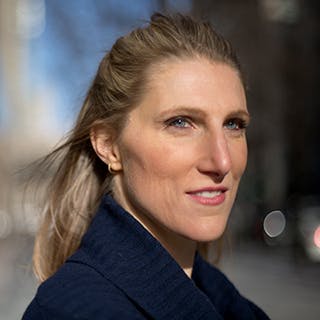Reproductive health impacts us all, yet it is often an issue that is misunderstood and underreported. Why We Care is a platform to bring together a diverse array of U.S. and global leaders to write personal essays about their commitment to international reproductive health and family planning.
Vanessa Kerry is one of the latest Why We Care essayists. She is a physician, the Chief Executive Officer of Seed Global Health, and the daughter of Secretary of State John Kerry. You can read her essay, in addition to the full range of essays, at why-we-care.org. Tell us why you care with #WhyWeCare.
Katherine Brandon: How have your experiences as a doctor working abroad shaped your views on international reproductive health?
 Vanessa Kerry: As a physician, I frequently am forced to confront the fragility of life. In resource-limited settings where I have worked much of my career, this fragility is exacerbated by poverty, social determinants, and especially poor health infrastructure. In these settings, despite health care providers’ best efforts, circumstances such as lack of resources, broken infrastructure, or distance to a health facility still have too much influence on shaping the health of patients.
Vanessa Kerry: As a physician, I frequently am forced to confront the fragility of life. In resource-limited settings where I have worked much of my career, this fragility is exacerbated by poverty, social determinants, and especially poor health infrastructure. In these settings, despite health care providers’ best efforts, circumstances such as lack of resources, broken infrastructure, or distance to a health facility still have too much influence on shaping the health of patients.
A woman and her child surviving the complexities of pregnancy and childbirth shouldn’t be the exception, but the rule. Investing in educating more doctors, nurses, midwives, and countless other health professionals worldwide is essential to making advancements in international reproductive health and consequently, global health. After all, we know that healthy mothers and children lead to healthy societies. By providing quality reproductive health care to women today, we will help sow the seeds for sustained improvements in international reproductive health for years to come.
KB: How has your own family inspired you?
VK: I grew up in a family committed to public service and social responsibility. My father was a public defender and then started working in the Senate when I was 7 years old. My mother was an advocate to eliminate the destructive stigma around depression. Many of my aunts and uncles have also dedicated their work to women’s issues, education, and economic recovery on a global scale. Through them, I have learned that with privilege comes responsibility, and I have tried to uphold this family tradition through my work at Seed Global Health, the Mass General Center for Global Health, and as a physician.
KB: Why do you think Americans should care about international reproductive health?
VK: Access to good health care – whether for reproductive health, or treatment for HIV, or other needs – is a fundamental human right. Access to reproductive health however is especially vulnerable for many women. Eight hundred women die every day from complications of pregnancy and childbirth; in Tanzania, more than one woman every hour will die for these same reasons. We know that women’s health impacts households and communities. Children who lose their mother are more likely to be socially and economically disadvantaged for their lives. Beyond the moral imperative, the health of Americans would also benefit from a greater commitment to improving reproductive health globally. The United States is 49th in maternal mortality. Reverse innovation may provide systems and tools targeted to improving maternal health that could be utilized here.
Further, if the U.S. invested in sending physician and nurse educators to help strengthen medical and nursing education abroad, it would be an investment in our country. Research shows that these professionals are more likely to choose primary care or other under-addressed specialties and/or work in underserved areas when they return from serving abroad. With burgeoning population growth and the changing face of globalization, the global population is increasingly confronted with one another’s challenges and successes. Reproductive health is a shared responsibility and deserving of protection.

